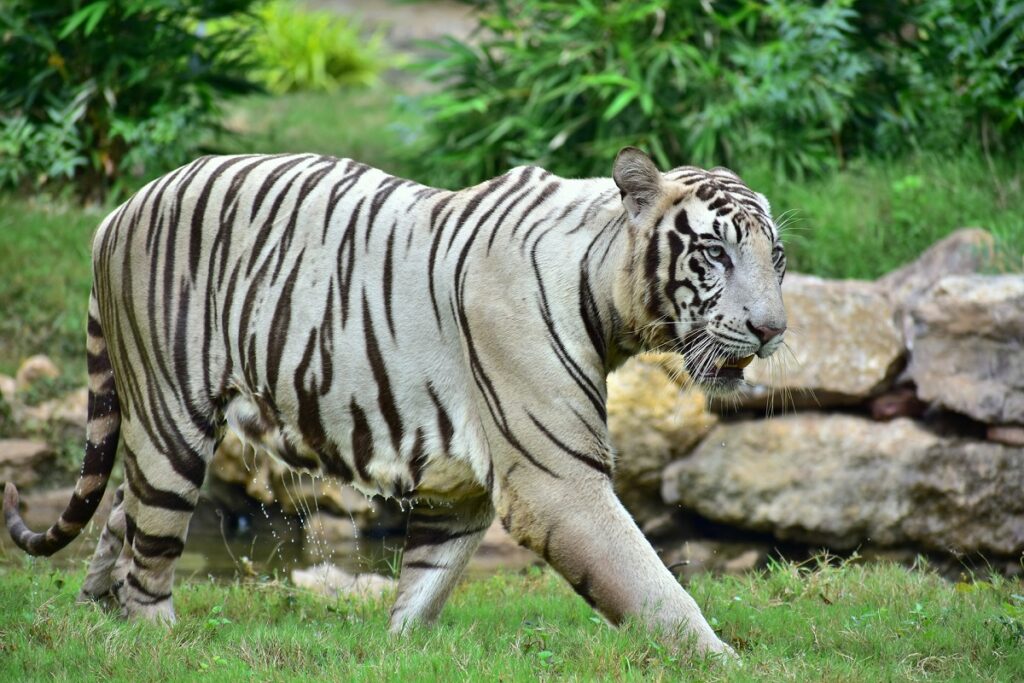Chhattisgarh is a big state full of natural beauty, rich history, and diversity, tucked away in the center of India. A plethora of activities that mirror the distinct identity of Chhattisgarh are available to tourists, ranging from visits to old archaeological sites to luxuriant woods and colorful festivals.
Geography and Landscape
The states of Madhya Pradesh to the northwest, Uttar Pradesh to the north, Jharkhand to the northeast, Odisha to the east, Telangana to the south, Maharashtra to the southwest, and Madhya Pradesh to the west encircle Chhattisgarh, which is situated in central India. The state’s varied topography, which includes plateaus, thick woods, and plains, is what makes it unique. As a portion of the Satpura Range, the Maikal Hills in the state’s north are covered in dense woods that serve as a home to a diverse range of flora and wildlife. The southern region of Chhattisgarh, the Bastar Plateau, is renowned for its untamed landscape and indigenous populations.
One of the principal rivers in central India, the Mahanadi River, passes through the eastern portion of Chhattisgarh, supplying irrigation and bolstering the local agricultural sector. The state is traversed by several rivers, including the Godavari, Indravati, and Narmada, all of which add to its abundant biodiversity.
Historical and Cultural Heritage
Ancient archeological sites located all around the state of Chhattisgarh contain traces of human occupancy dating back thousands of years, contributing to the state’s rich past. Located along the historic Dakshinapath, Sirpur was once a prominent center of Buddhist culture and trade, making it one of the most well-known archeological sites in Chhattisgarh.
A number of historic forts and temples can be found throughout the state, which attests to its rich cultural history. Lord Shiva is the subject of the Bhoramdeo Temple, which is situated close to Kawardha and features architecture in the Nagara style. Another significant historical site in Chhattisgarh is the Raipur Fort, which was constructed in the fourteenth century by King Brahmadeo Rai.
With more than forty distinct tribal clans living in the state, Chhattisgarh is well-known for its thriving tribal culture. The Gonds, Baigas, and Maria are among the tribal communities that celebrate their distinct cultures, languages, and traditions via vibrant festivals and ceremonies.
Natural Beauty and Biodiversity
Chhattisgarh is endowed with an abundance of breathtaking natural features, such as thick forests, imposing waterfalls, and stunning scenery. The state is home to a number of national parks and wildlife sanctuaries, including Achanakmar Wildlife Sanctuary, Kanger Valley National Park, and Indravati National Park, which are refuges for biodiversity.
Dubbed the “Niagara of India,” Chitrakoot Falls is one of Chhattisgarh’s most recognizable natural landmarks. One of India’s widest waterfalls, Chitrakoot Falls lies close to Jagdalpur and tumbles down sheer cliffs into a tranquil lake below.
With several indigenous species found in its woods and protected regions, Chhattisgarh is renowned for its abundant flora and fauna. Numerous varieties of wildlife, including tigers, leopards, elephants, and endangered species like the hill myna and the Bastar hill myna, can be found in the state.
Economy and Development
The primary sector of Chhattisgarh’s economy is agriculture, which forms the backbone of the state’s economy. Crops including rice, wheat, maize, and legumes can be grown on the fertile plains and river valleys. The state has large quantities of coal, iron ore, limestone, and bauxite, among other resources.
Chhattisgarh has experienced tremendous economic expansion and industrialization in recent years, thanks to the growth of sectors including aluminum, steel, cement, and power. Industrial corridors and special economic zones have been established as a result of the state government’s implementation of a number of policies aimed at encouraging investment and generating job opportunities.
Chhattisgarh has established universities, colleges, and hospitals throughout the state, making notable advancements in the fields of healthcare and education. The government has implemented a number of welfare plans and initiatives to raise the standard of living for its people and promote inclusive growth.
Cuisine and Culinary Traditions
The utilization of locally obtained foods and simplicity define the cuisine of Chhattisgarhi. The main dietary staple in the area is rice, and the residents love foods like rice roti, bhat, and rice-based snacks. A wide range of dishes made with lentils are also part of the cuisine, including dal bafauri, fara, and chila.
“Chila,” a savory pancake made with rice flour and lentils that is frequently eaten with a spicy chutney or pickle, is one of Chhattisgarh’s most famous foods. Other well-liked meals are “bhajia,” which are vegetable and gram flour fritters, and “poha,” which is flattened rice cooked with onions, tomatoes, and spices.
In summary
Chhattisgarh is a place of extremes, where old customs and contemporary development coexist and there is an abundance of breathtaking scenery everywhere you look. Chhattisgarh provides visitors with an immersive experience that lingers because of its rich history, lively culture, and varied landscapes.

